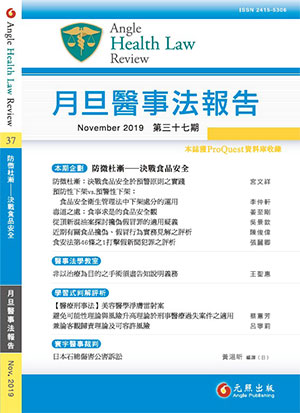從頂新混油案探討攙偽假冒罪的適用疑義【本期企劃】 試閱
Discussion on the Applicable Doubt of the Adulterated or Counterfeited Crime from the Ting Hsin Mixed Oil Case
在食品安全事件中,最常見者即是攙偽假冒或是添加未經主管機關許可之物。面對此等違法行為,過去乃先採取行政處罰,在其對人體健康有危害時,才處以刑罰。惟食品安全衛生管理法於2013年修正後,對上開違法行為直接處以刑罰,並在之後的修正加重刑度,惟如此除有罪刑不相當的問題外,也造成法條適用的疑問。本文將檢討相關法規範,並以頂新混油案為例加以說明。
In food safety cases, the most common occurrence is the falsification of counterfeiting or the addition of things that are not permitted by the competent authority. In the face of such violations, administrative punishments are generally adopted first. Only when it is harmful to human health, the pattern of punishment is treated. It was only after the amendment of the Food Safety Law in 2013 that it was directly penalized for violations of this law, and the subsequent amendments aggravated the sentence up to seven years in prison. In addition to the problem that the crime is not equivalent, it also raises the question of the application of the law. This article starts from the review of the law, and takes the case of the Tinghsin mixed oil case as an example.
044-055






